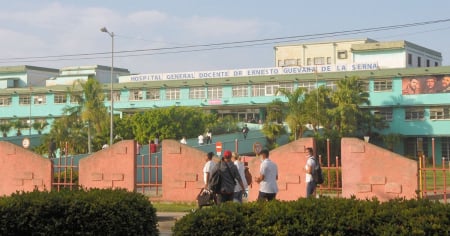A 33-year-old man was sentenced to 10 years in prison for the crime of robbery with violence or intimidation after attempting to snatch a mobile phone from a young woman in Santiago de Cuba.
The incident occurred in May 2024, when the accused attempted to steal a Samsung brand cell phone, but was intercepted by PNR agents, which prevented his escape and left the act at the level of attempted theft, reported the official Tele Turquino.
The oral and public trial corresponding to case 25 of 2025 took place in the First Criminal Chamber of the Provincial People's Court of Santiago de Cuba.
During the hearing, it was determined that the defendant violated Article 415.1.2, paragraph B, of the Penal Code, which mandates penalties ranging from 7 to 15 years in prison for this type of offense.
The court also took into account the defendant's inappropriate social behavior and his criminal record for robbery with violence and burglary.
As an additional sanction, he was imposed the deprivation of public rights and the prohibition from leaving the national territory.
Amidst a growing wave of public insecurity, the Cuban regime has announced a judicial crusade aimed at imposing "exemplary trials" as a form of social control. This strategy seeks to reinforce the repressive apparatus through severe sentences, particularly for crimes involving criticism of the government, corruption, or actions deemed destabilizing to public order.
As part of that policy, three workers from the Nico López Refinery in Havana were prosecuted for alleged crude oil theft. The regime accused them of "misappropriating state resources" in a case presented with significant media attention, lacking clear guarantees of due process.
In another case related to economic crimes, a Cuban was sentenced to 10 years in prison for the theft of computers belonging to the state system. The court classified the act as having "high social danger," in line with the pattern of disproportionate punishments promoted by the government campaign.
The case of a former mayor of Puerto Padre, sentenced to seven years in prison for administrative irregularities also joined this judicial offensive. Her trial was presented as an example of the alleged fight against corruption, although activists denounce its selective and political nature.
Finally, a young Cuban was sentenced to seven years in prison for criticizing Miguel Díaz-Canel on social media. The case, unprecedented in recent times, revealed the use of the penal system as a tool for direct repression against dissent and freedom of expression.
Frequently Asked Questions about Violent Crimes and Thefts in Santiago de Cuba
Why was the man in Santiago de Cuba sentenced to 10 years in prison?
The 33-year-old man was sentenced to 10 years in prison for attempting to violently steal a cellphone from a young woman in Santiago de Cuba. Furthermore, the court took into account his criminal record and his antisocial behavior.
What additional measures were imposed on the accused of the robbery in Santiago de Cuba?
In addition to the 10-year prison sentence, the accused was imposed the deprivation of public rights and a ban on leaving the national territory as additional sanctions.
How is the Cuban government addressing the increase in crime?
The Cuban government is conducting exemplary trials and a media campaign to project an image of control over crime, in an effort to contain internal chaos and escalating insecurity.
What impact does violence have on contemporary Cuban society?
Violence and violent crimes have created a climate of fear and insecurity among the Cuban population, which is facing increasing insecurity and criticizing the police's ineffectiveness in addressing the issue.
Filed under:
